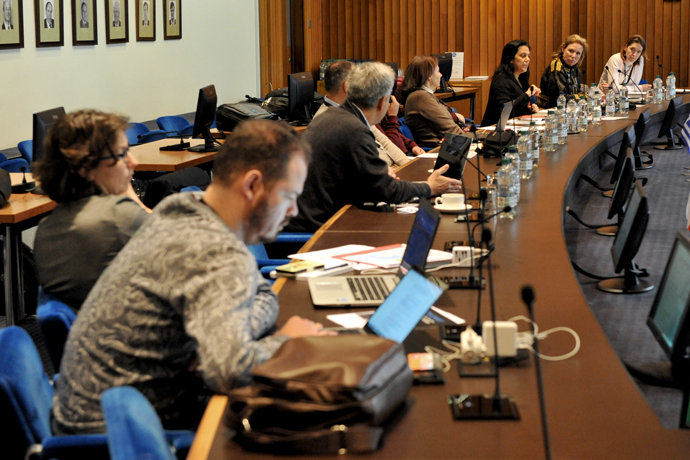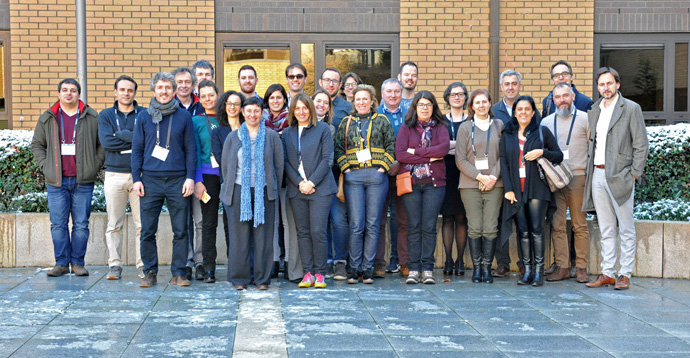

Thirty experts from across Europe came together at ECMWF from 21 to 23 January 2019 to draw up a roadmap for the creation of a European virtual operating centre for natural disasters.
They met as part of the three-year ARISTOTLE 2 project launched in October 2018, in which ECMWF is involved as a subcontractor and data provider for flood and fire services.
“The aim of the workshop was to help prepare the ground for a 24/7 European multi-hazard virtual advice service for natural disasters for the European Commission’s Emergency Response Coordination Centre (ERCC),” says ECMWF scientist Francesca Di Giuseppe, one of the organisers of the meeting.
Breakout groups focused on hazards related to floods, wildfires and volcanos.
Flood experts discussed extending the existing ARISTOTLE flood hazard service to the global scale using the Global Flood Awareness System (GloFAS), which is part of the EU’s Copernicus Emergency Management Service (CEMS).
“An action plan to implement a rapid flood impact assessment tool was set out ahead of the planned demo phase in May,” says ECMWF scientist Shaun Harrigan.
Meeting for the first time, the forest fire group reviewed local tools used in fire forecasting as well as ECMWF’s CaliVer tool, developed to support fire forecasting data analysis.
“There were lively discussions on the kind of information needed to deliver the ARISTOTLE 2 fire service demo phase as well as the future operational service,” says ECMWF scientist Ruth Coughlan.
“This was a very useful workshop as it brought together a wide range of expertise,” says Francesca.
“It is the beginning of a process leading up to the delivery of ARISTOTLE 2, with a first demo phase of the service starting in May 2019 for six weeks.”

Participants in the ARISTOTLE 2 workshop came from the project coordinator, Italy’s National Institute of Geophysics and Volcanology (INGV), and from partners including Austria’s Central Institution for Meteorology and Geodynamics (ZAMG); the British Geological Survey; the CIMA Research Foundation (Italy); the Dutch national meteorological service (KNMI); the European Commission; Météo France; the Portuguese national meteorological service (IPMA); the UK Met Office; and ECMWF.
